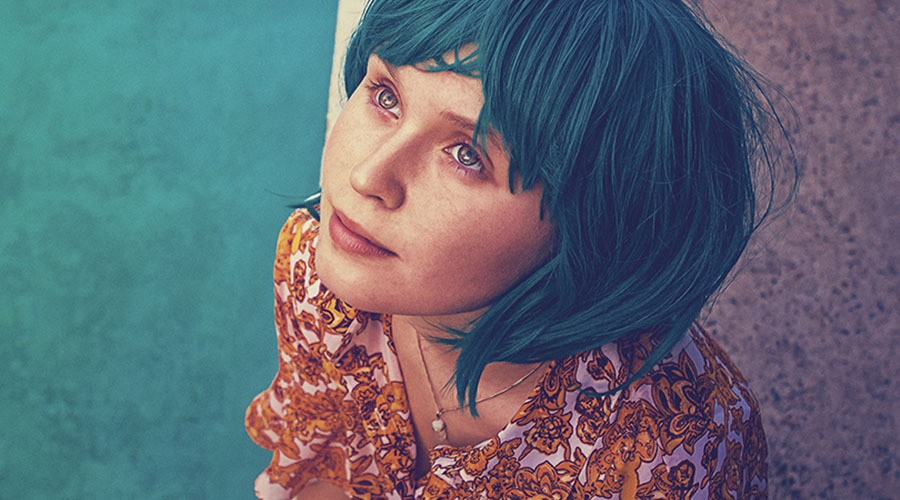
It is not exaggerated to say that a great number of movies which premiere at International Film Festivals have a short life. Most of them are low-budget arthouse productions that, because of their independent nature, are unable to obtain a proper release in worldwide theaters, which are normally dominated by Hollywood blockbusters.
This list presents some of these films, most of them have premiered in this edition’s Locarno or Venice Film Festivals with critical acclaim, although in most cases they have unfairly been hidden under the award-winning productions of these Festivals.
1. Ham on Rye (Tyler Taormina, 2019)
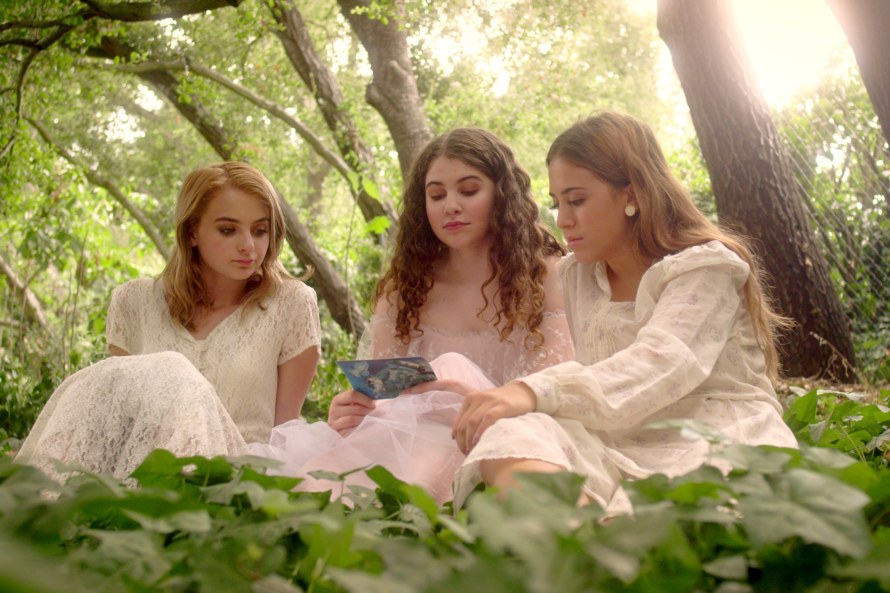
A group of teenagers is on their way to Prom night. Using a nostalgic crepuscular tone that isn’t incompatible with an interesting super innocent irony, Tyler Taormina debut is a tribute to spending the teenage life in the American suburbs. The story is focused on developing a coral plot with extremely unique characters that present themselves in grotesque situations.
It is obvious that Taormina pays special attention to the wonderful cinematography, step-to-step pace and the fresh yet sentimental tone of the movie. He is capable of developing a bright stylish edit that is masterfully divided into the hope and innocence of the daylight and the misery and loneliness of the night.
All in all, Ham on Rye is a unique piece of filmmaking that rather than a complete and developed plot, presents a poetic visual experience linked with some slow-motion, lost tunes and a group of virginal and naïve teenagers that must leave the suburbs to start a new life stage.
2. Echo (Rúnar Rúnarsson, 2019)
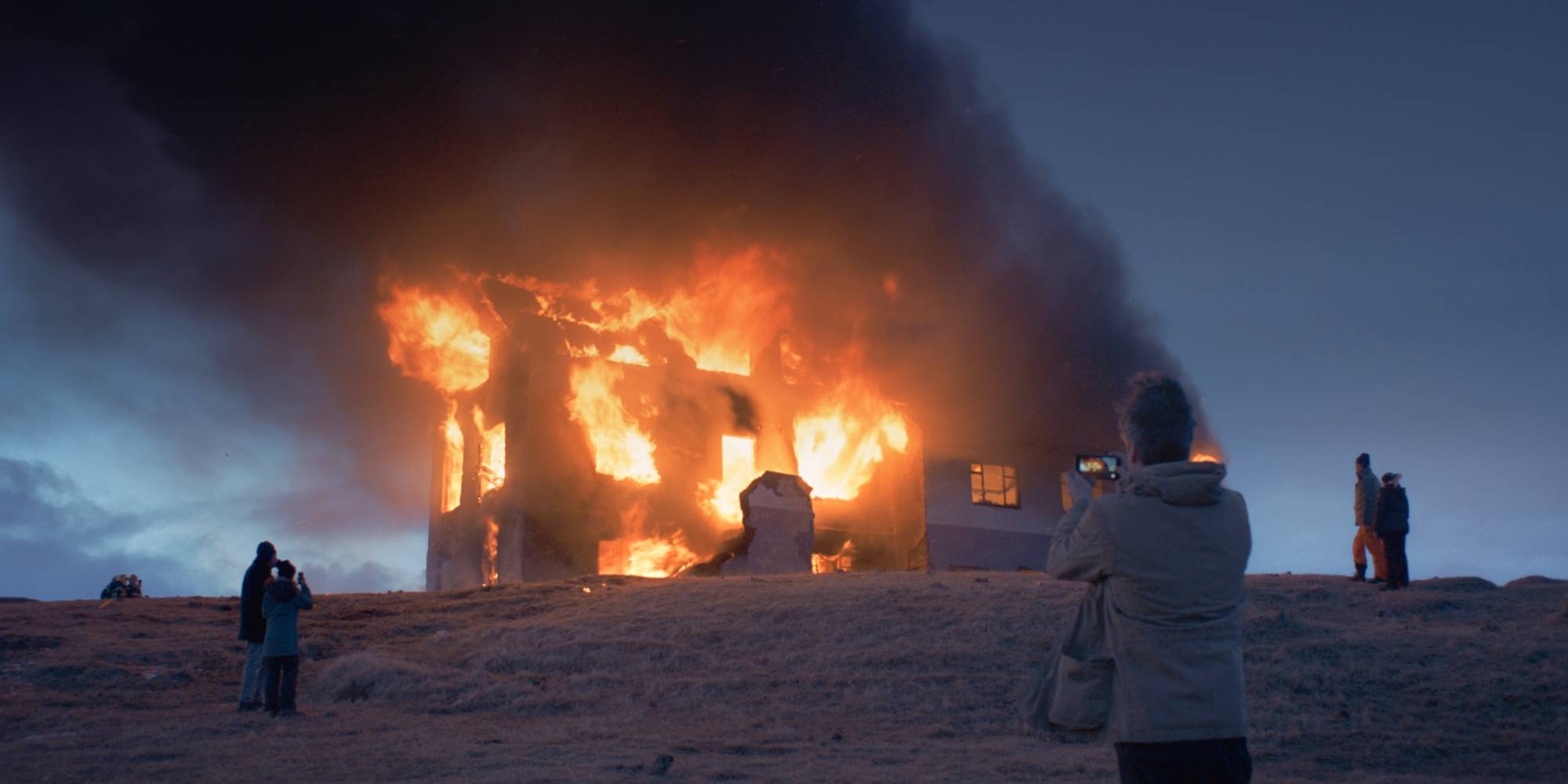
Imagine a movie that consists of a masterful collage of 56 independent scenes shot by a still point of view (without any repeated characters or situations) all happening during the Christmas and New Year’s Holidays in Iceland. Écho is a very complete portrait of the present-day Icelandic society and consequently, a necessary depiction of western European capitalism at its finest.
Even though there is no plotline, Écho turns out to be a deeply immersive experience and a must-watch in a theater screen. Its slow pace and constant change of tone; some scenes are just hypnotic, some present a comical situation, some show the extreme social inequality of today’s era, etc. but in any case, the spectator will surely feel emotionally interpaled in some way or form.
3. The Days to Come (Carlos Marques-Marcet, 2019)

What is the key element that makes a motion picture be so? Is it having an original story rather than “real people” playing their ordinary life? Els dies que vindran (The Days to Come in the English translation) is a low-budget bomb that has been released to destroy our conventional thoughts of what a film should be. It presents a young energic couple in love that finds themselves suddenly living an unexpected pregnancy. What is more amusing about this delicate and intimate story is the realness it depicts as both main characters are real-life partners and the pregnancy they are living is again, authentic.
In his third feature movie, Carlos Marques-Marcet manages to accomplish something experimental by its nature, as it is constructed as the real pregnancy goes on. Inside its level of intimacy, the spectator is allowed to become a voyeur between the contradictions, unexpected events and personal growth and resignations that our couple of protagonists is forced to handle. Undoubtedly, a new step between fiction and reality that feels as close and palpable as if we were living this loving story.
4. An Elephant Sitting Still (Hu Bo, 2019)
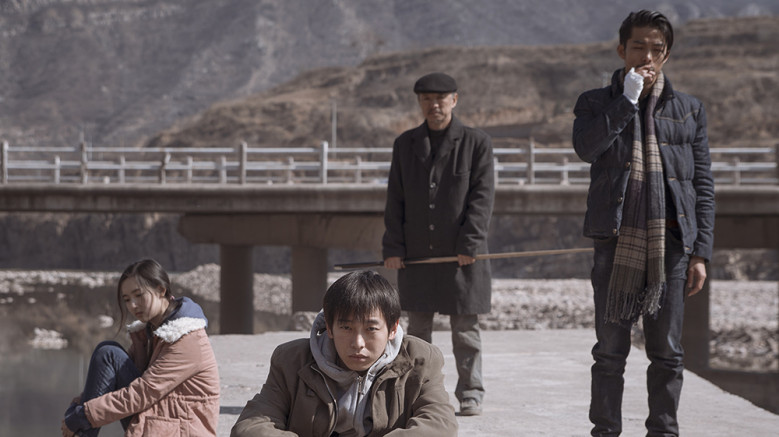
It says the legend that in the city of Manzhouli situated in the north of China, there is a seated elephant that does not answer to any temptation that presents itself in front of him. It is a big beast settled in an unknown zoo that always remains static, serene, calm.
The opera prima and at the same time, the cinematic will of Hu Bo, the young Chinese director of An Elephant Sitting Still (Hu Bo, 2018), configures a movie myth by itself. The 231 minutes of length together with the constant long sequence shots and interminable dialogues, consolidate an authentic authorial seal with signs of tribute to the meticulous plans of Béla Tarr, with whom the director collaborated, and a consciously depressive thematic that deepens in the darkest hole of human blackness. Hu Bo, like Passolini during the ’60s with films like Acattone (1961), builds a portrait of the marginalized, always apparently progressing Chinese society, photographing the skyscrapers that look upwards and crush the ones beneath.
The movie narrates the history of four characters that will cross their paths, all trying to escape complicated situations in which selfishness has been established as a value on the rise. The wish of liberty will define the fate of these; they all hope to go up to a train that never arrives, leave with all the consequences that this involves. An elephant sitting still, is a monumental experience, an intense cinematographic journey to the darkest depths of the human soul created by an author that did not find the elephant that so much desired.
5. We the Animals (Jeremiah Zagar, 2018)
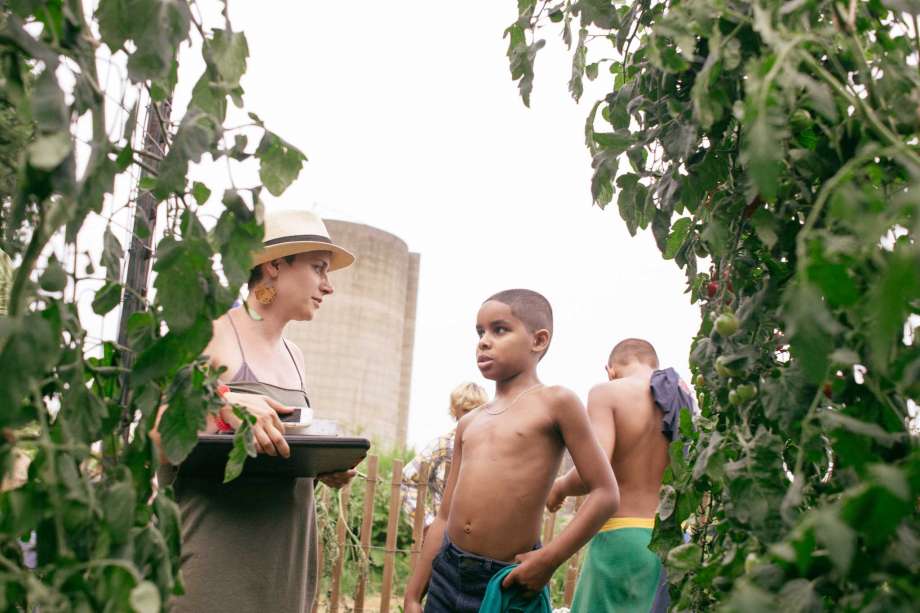
We the Animals follows the story of nine-year-old Jonah and his two slightly older brothers, who altogether live with their young and temperamental parents Ma and Paps. Having a child as the main point of view of the film not only dictates its style (offering a similar vision portrayed in The Florida Project, 2017), often creating a beautiful hand-held grainy 16mm look, but also accomplishes a completely different emotional effect once watched.
Set in upstate New York in the 1990s, the film mirrors this often-dysfunctional family living just above the poverty line. As the plot is being developed, Jonah will slowly discover he possesses a different character compared to his siblings. He holds a more delicate sensitivity that diverges from his brother’s and dad’s masculinity; he can comprehend reality in a more understandable, meticulous way seeing through its surface. In his feature film debut, Jeremiah succeeds in profoundly dealing with thematics like masculinity, poverty, domestic violence and self-discovery through a vibrating impressionistic tone.